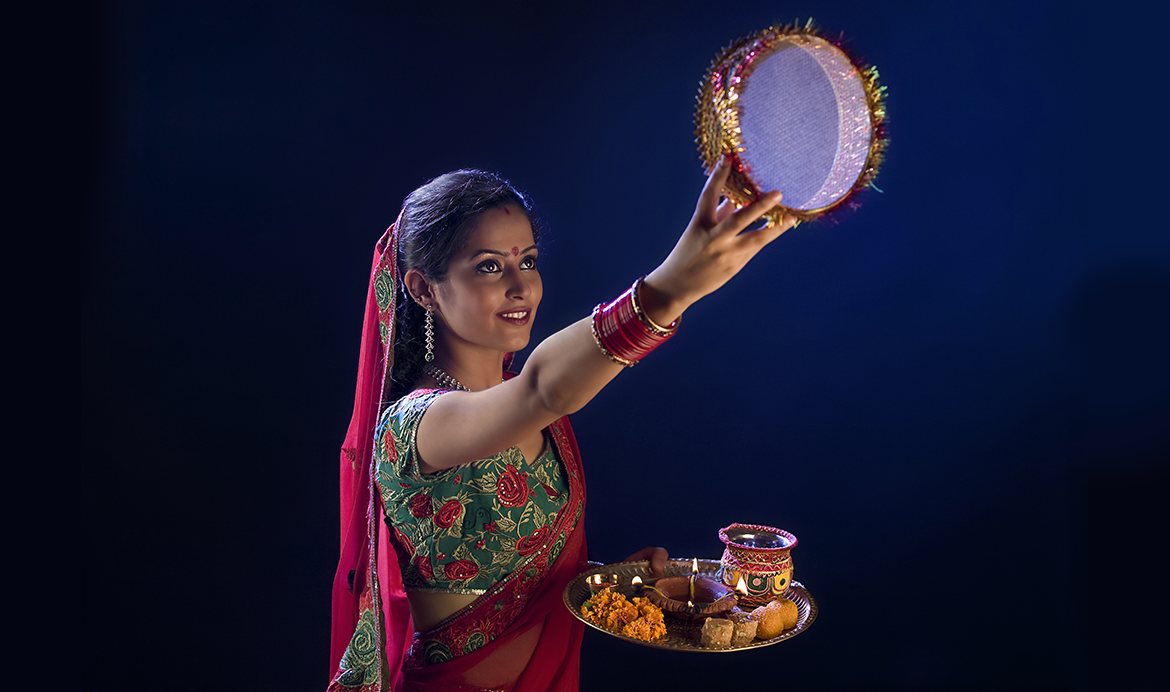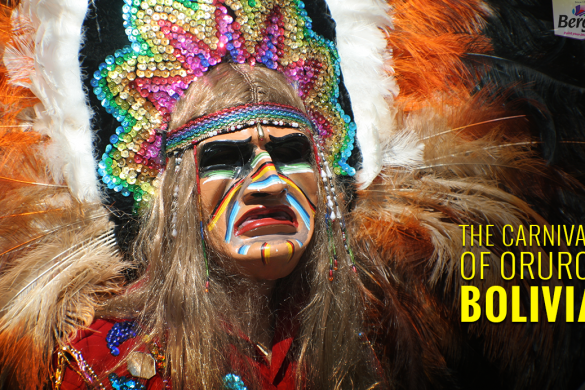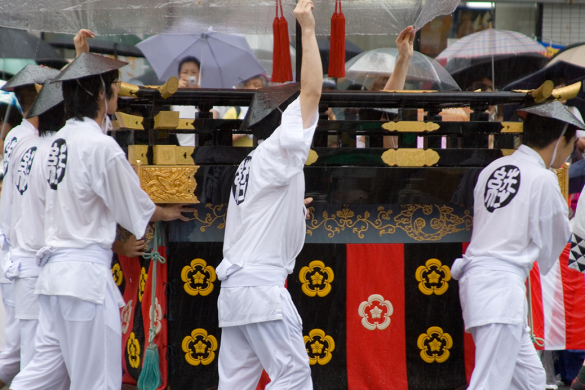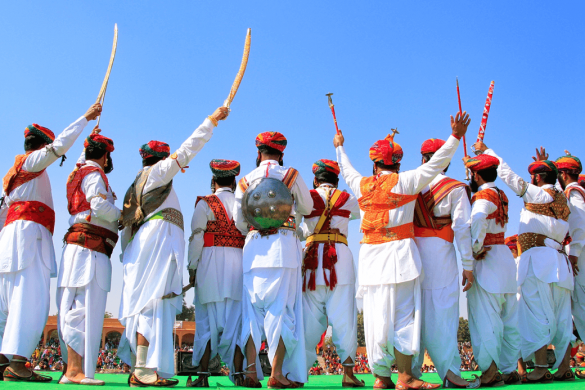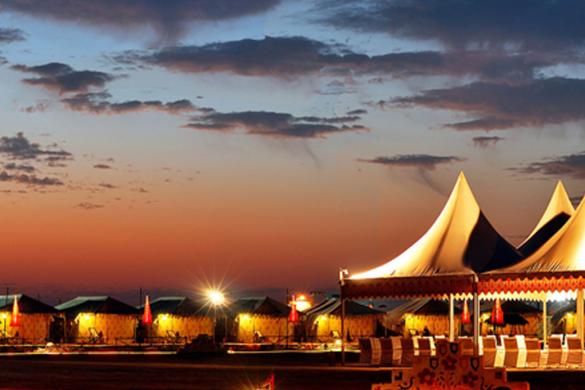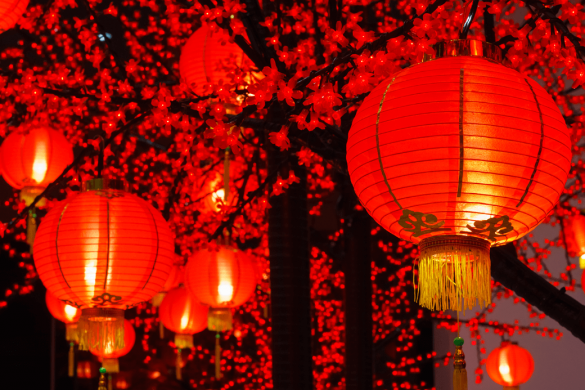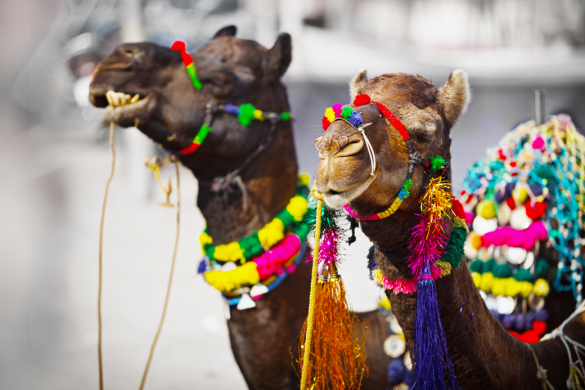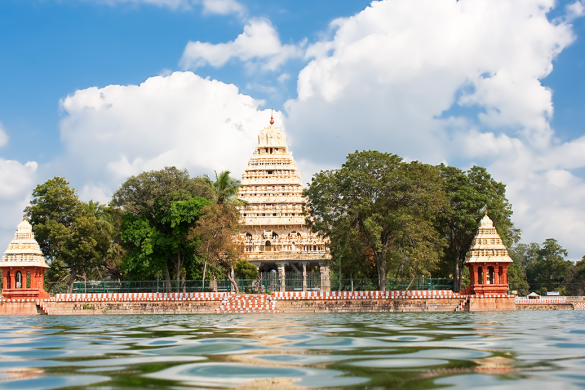It is that month of the year when married Hindu women in Northern India dress up in red, gold, orange or maroon. They observe fasts and pray for a happy married life and the longevity of their husbands.
Celebrated nine days before Diwali, Karwa Chauth is an auspicious festival celebrated on the fourth day of the waning moon in the Hindu month of Kartik which falls in October. ‘Karwa’ means a small earthern pot of water and ‘chauth’ means ‘fourth’ in Hindi. It refers to the fact that the festival falls on the fourth day of the dark-fortnight, or ‘Krishna Paksh,’ which is the month of Kartik. The festival also coincides with the wheat-sowing time, which is the beginning of the Rabi crop cycle. Huge earthen pots in which wheat is stored are sometimes called ‘Karwas’. There is a possibility that this festival may have begun as a prayer for a good harvest.
Pre-celebrations of this festival include applying henna or ‘mehndi’ on the hands. A few days before Karwa Chauth, married women buy new ‘karwas’ and paint them on the outside with lovely designs. They put bangles, ribbons, home-made sweets, make-up items and small clothes inside it. On the day of Karwa Chauth, they visit each other and exchange these ‘karwas’. Daughters-in-law purchase new clothes and gifts for their mothers-in-law and mothers-in-law present them with red sindoor, new bangles and make-up kits in exchange, wishing them a long and happy married life.
The married women wake up before sunrise on the day of the festival and decorate their ‘puja thali’ for the evening puja. The evening puja is the most important ritual of Karwa Chauth. All the married women gather before sunset and sit in a large circle surrounding an idol of Goddess Gauri. They sing the Karwa Chauth song and pass their ‘puja thalis’ around, listening to the Karwa Chauth story.
After the Karwa Chauth puja is over, the women wait for the moon to rise so that they can end their fasts. Once the moon is sighted by one of the family members, the women carry their ‘puja thali’ and a sieve to see the moon through it. They offer rice and water to the moon, praying and breaking their fast by drinking water. Once the fast is broken, they gorge on the ‘sargi’ to celebrate. A ‘Sargi’ ideally comprises of sweets, matthri, dry fruits and a piece of coconut. Sometimes, unmarried women join the fast for their fiancés or desired husbands.
